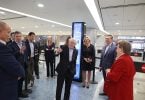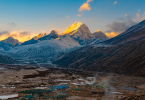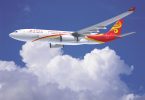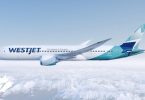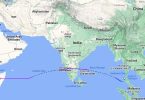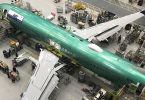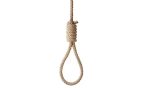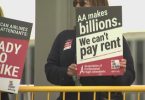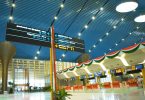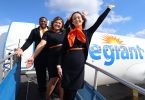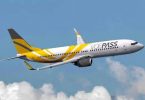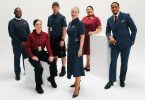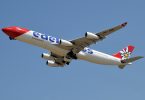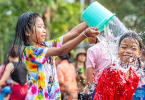How do we sensibly and effectively restart travel and tourism, the industry that employs 1 in 10 workers globally? This is a workforce that has been decimated by the COVID-19 pandemic. How will Asia prepare for recovery?
Dị ka Council njem na njem nlegharị anya nke ụwa (WTTC) mmetụta njem na njem nlegharị anya kpọmkwem, nke na-apụtachaghị ìhè na nke butere n'afọ gara aga na 2019 bụ:
- US $ 8.9 trillion onyinye na GDP ụwa
- 3% nke GDP zuru ụwa ọnụ
- Ọrụ nde 330, otu n'ime ọrụ 1 gburugburu ụwa
- Mbupu ndị ọbịa $1.7 trillion (6.8% nke mbupụ mbupụ, 28.3% nke mbupụ ọrụ zuru ụwa ọnụ)
- US $ 948 ijeri isi ego (4.3% nke mkpokọta ego)
Tourism recovery is the no.1 topic and all sections of our industry are looking and learning.
The plethora of webinars popping up with recovery and “next step” discussions is testament to the energy and interest in getting back to work.
But are webinars useful? Earlier this week respected publisher Don Ross (TTR Weekly) suggests that webinars often fall short in good common sense. “Since the COVID-19 pandemic banished us all to our homes to live under lockdown, we are inundated with promotions for webinars that promise to navigate the travel industry back from the brink to a new norm. The deluge of webinars promises to show us the way forward, but so often when we tune in to the talkfests, they fluff on the details. They avoid the obvious and concentrate on the obscure, I suspect we attend webinars hoping the experts can offer some old fashioned common sense to help us survive the financial storm,” he wrote.
Industrylọ ọrụ njem nlegharị anya enwetala nnukwu ihe site na coronavirus, the UNWTO na-etinye mfu ahụ na ijeri US $ 450. Nje virus butere opekata mpe nde mmadụ 3.48 n'ụwa niile wee gbuo ihe karịrị 244,000. Ebe ndị njem nlegharị anya kachasị dị ka United States, Spain, Italy na France so na mba ndị nwere ọnụọgụ ọrịa kachasị.
People will only travel again if they feel it is safe to do so – this was best expressed by Don Ross again when he wrote:
“In the COVID-19 world, common sense dictates we will travel when it is safe and when we have the spare cash. That’s what we are not addressing in webinars. The pandemic is breaking the bank for everyone, but how will we ensure health safety in order to reboot travel?”
Mgbake dị elu karịa n'uche Skål International na ndị UNWTO. Ndị otu Board nke Mgbakwunye, nke CEO nke Skål International, Daniela Otero, bụ onye otu, na-atụle ka esi ahazi nzaghachi maka mpaghara njem, karịsịa na usoro mgbake na ihe kwesịrị ịbụ ihe ndị gọọmentị ga-eburu n'uche. .
A na-arụ ọrụ ugbua na UNWTO na usoro izizi enwere ike imepe protocol metụtara akụkụ niile nke ụlọ ọrụ ahụ, na-ekwupụta na ozugbo gọọmentị kwere, ọ ga-adị mkpa iji ngwa ngwa mee ihe n'ihi na njem nlegharị anya so na ụlọ ọrụ kacha sie ike n'ihi COVID-19 na nsonaazụ ya.
The UNWTO na-ekwu na mfu nke ndị njem nlegharị anya mba ụwa n'ụwa niile n'afọ a nwere ike ịda ihe ruru 30%.
The UNWTO na-echeta na njem nlegharị anya abụrụla ihe a pụrụ ịdabere na ya maka mgbake n'ihi ọgba aghara gara aga, na-ebute ọrụ na ego. Tourism, na UNWTO na-ekwu,
"Enwere uru dị ukwuu nke gafere mpaghara ahụ, na-egosipụta usoro uru akụ na ụba ya gbadoro ụkwụ na ukwu na akara ukwu mmekọrịta ọha na eze."
Ihe dị ka 80% nke azụmahịa njem nlegharị anya niile bụ obere ụlọ ọrụ dị obere na nke ọkara (SMEs), ngalaba ahụ na-ebute ụzọ n'inye ọrụ na ohere ndị ọzọ maka ụmụ nwanyị, ndị ntorobịa na obodo ime obodo na njem nlegharị anya nwere nnukwu ikike imepụta ọrụ. mgbe ọnọdụ nsogbu gasịrị.
Kemgbe mmalite nsogbu dị ugbu a, UNWTO na-arụkọ ọrụ ọnụ na Òtù Ahụ Ike Ụwa (WHO) iji duzie ngalaba ahụ, na-enye ndụmọdụ ndị bụ isi maka ma ndị isi ọkwa dị elu na ndị njem nlegharị anya n'otu n'otu.
To rebuild and restart travel we are so dependent on air uplift. Once airlines start flying again the industry can recover. How long that will take is widely discussed.
Onye isi ụlọ ọrụ PATA Dr. Mario Hardy kwuru, “ajụjụ mbụ dị n'uche onye ọ bụla bụ, ogologo oge ole ka anyị ga-agbake? Nke a abụghị ajụjụ dị mfe ịza.”
Asia, he believes, will deliver the largest rebound in travel to the Asia Pacific region in 2021, according to the updated forecast released by PATA. Their research claims visitors should deliver 610 million visitor arrivals in 2021 (of which 338m are inter-regional). A growth in total visitor arrivals of 4.3% compared to 2019 (585m).
Mmụba na mbata ndị ọbịa mba ofesi (IVAs) nwere ike ịdịgasị iche site na mpaghara isi mmalite, ebe a na-atụ anya Asia na ọ ga-eji ọnụego uto kacha ngwa ngwa dabere na 2019.
N'ime oge mgbake a na-atụ anya na 2021, Eshia kwesịrị iwepụta ọnụ ọgụgụ mbata ka mma, na-alaghachi na mfu nke nde mmadụ 104 n'etiti 2019 na 2020 iji too 5.6% ruo 338m na 2021 n'ihe metụtara 2019.
Ọ gaghị abụ ụgbọ mmiri nkịtị. Anyị ga-eche asọmpi si gburugburu ụwa ihu maka ndị njem nlegharị anya, yana ndị ọbịa anyị oge niile - gụnyere ndị si China China.
Hong Kong Tourism Board chairman Pang Yiu-kai noted that while it was difficult to predict when the industry would recover from the COVID-19 pandemic, a V-shaped rebound was impossible in the face of restrictions overseas and flight suspensions.
What was certain he said was that every market would spend hundreds of millions of dollars, or even billions, to chase after tourists as the pandemic had paralyzed global travel and battered the industry since February, he said.
"A ga-agbanwe mpaghara njem nlegharị anya, a ga-enwekwa ihe ọhụrụ," onye isi njem nlegharị anya HK kwuru n'oge ogbako ya kwa afọ nye ndị ọrụ ụlọ ọrụ 1,500.
Pang kwukwara na dabere na nyocha ahịa, ndị njem nlegharị anya na ndị si n'ahịa dị mkpụmkpụ ga-eme njem n'ụlọ n'oge na-adịghị anya ọrịa ahụ nwụsịrị. Mmiri ga-atụgharị.
Ọ sịrị, "Mgbake nke ọrịa na-efe efe gachara ga-adị iche na nke ahụ mgbe ntiwapụ nke nnukwu iku ume iku ume (SARS) na 2003," ka o kwuru.
“In 2003, the SARS outbreak was mainly in Hong Kong. For COVID-19, the whole world is affected,” Pang said.
Although economic activities had gradually resumed across the border and people were returning to work, mainland travelers would place greater emphasis on health and nature after months of confinement, Pang said agreeing with our earlier comments from Don Ross.
“When choosing destinations for future trips, they will be more price conscious and will favor those that pose low risks to health,” he said. “The MICE market on the mainland has slowed down and activities have been held online or postponed.”
“Regionally, young and middle-aged Japanese, Koreans and Taiwanese would be the most eager to travel but would favor short-haul trips because of financial and holiday leave constraints,” he said.
Long-haul travel would take longer to recover, and Hong Kong’s outbound sector might not resume until the last quarter of this year, he added.
Onye isi oche Dane Cheng Ting-yat kwuru na ụlọ ọrụ HK ewepụtala HK $ 400 (ijeri 1.66 baht) iji kwado ụlọ ọrụ ahụ site na ụzọ atọ.
Ọ nọ ugbu a na-esepụta atụmatụ mgbake dị ka ọkwa mbụ.
Njem nlegharị anya bụ otu n'ime ụlọ ọrụ ogidi anọ nke Hong Kong, na-atụnye 4.5% na mkpokọta ngwaahịa ụlọ na 2018.
Banyere chepụtara

Andrew J. Wood was born in Yorkshire England, he is a professional hotelier, Skalleague and travel writer. Andrew has over 40 years of hospitality and travel experience. He is a hotel graduate of Napier University, Edinburgh. Andrew is a past Director of Skal International (SI), National President SI Thailand and is currently President of SI Bangkok and a VP of both SI Thailand and SI Asia. He is a regular guest lecturer at various Universities in Thailand including Assumption University’s Hospitality School and the Japan Hotel School in Tokyo.
#mmegharị njem




